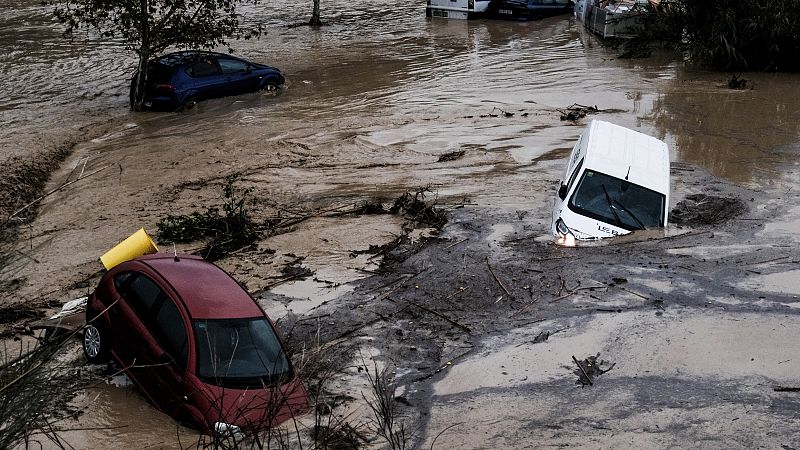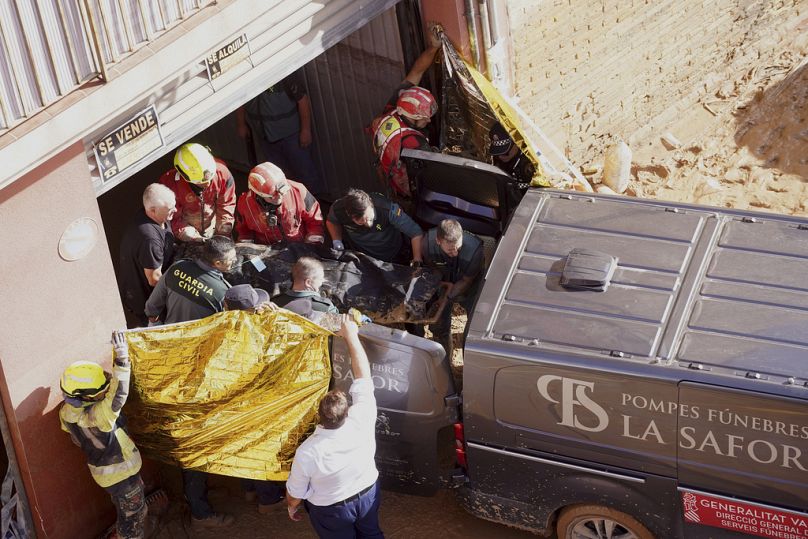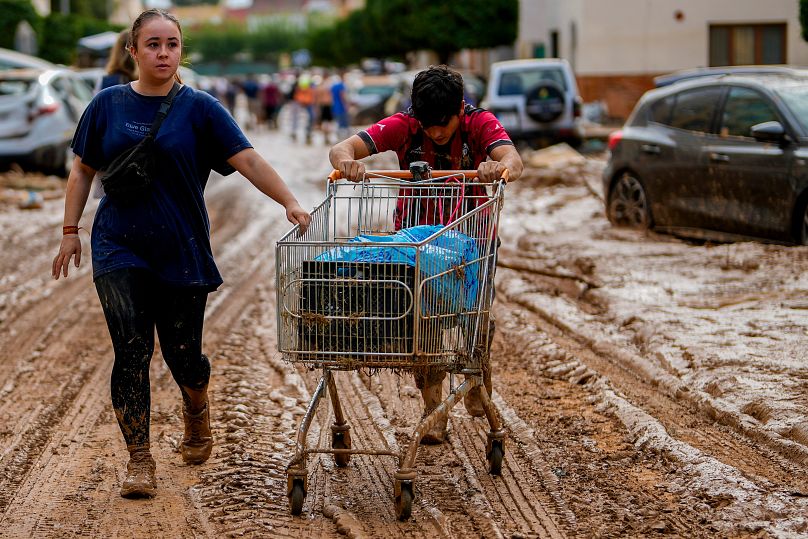Spain floods: Death toll rises to 205 as nation braces for more rain

Flood-hit regions in Spain are bracing for more heavy rain on Friday while hundreds of soldiers have been deployed to assist in rescue efforts after devastating flash floods killed at least 205 people in the nation's worst natural disaster in decades.
Torrential rain and hailstorms on Tuesday caused flooding across multiple regions including the hardest-hit eastern province of Valencia, turning streets into rivers that ripped into the ground floors of homes and washed away cars and people. The damage in many communities resembled the aftermath of a major hurricane or tsunami.
As of Friday, 202 deaths had been confirmed in the Valencia region alone. Another two people were found dead in neighbouring Castilla-La Mancha and one in southern Andalusia. An unknown number of people are still missing and the death toll is likely to rise as some flood-affected areas are still inaccessible, authorities have said.
At least 1,700 soldiers have been deployed to help regional and local emergency workers in the search for bodies and survivors and to provide aid, Spain's Defence Minister Margarita Robles told state broadcaster TVE on Friday. More troops are set to join the rescue and aid effort tomorrow as "there is still a great deal to be done", she said.
National weather service AEMET has issued amber rainfall warnings for Friday for areas in the Valencia and Castellón regions, where many communities are still reeling from the floods. While the rain is not forecast to be as heavy as Tuesday's downpours, it could pose a fresh flooding risk as the ground is already saturated, meteorologists warned.
Red warnings have been issued for areas of southwest Spain, near the border with Portugal, including the port city of Huelva. Heavy rainstorms in the early hours of Friday flooded part of the city and nearby areas. Andalusia's regional leader, Juanma Moreno, has urged people to exercise "extreme caution" and to stay in their homes if possible.
Warning to stay home
Spanish Prime Minister Pedro Sánchez pledged the government's full support to the areas affected by devastating floods, as he visited Valencia on Thursday, the first of three official days of mourning
“Our priority is to find the victims and the missing so we can help end the suffering of their families," Sánchez said. He urged people to remain at home, saying that the situation remained unstable. "The storm front is still with us," he warned.
Sánchez added that he had spoken to European Commission President Ursula von der Leyen, who had offered the EU's assistance, and said that member states had also stepped up to offer resources.
Von der Leyen told reporters in Brussels earlier this week that the EU will “help coordinate the rescue teams” using its Copernicus geo-monitoring satellite system.
On Friday, the flags in front of the European Commission's Berlaymont building in Brussels were lowered to half-mast in a gesture of solidarity with Spain.
"Our thoughts are with the victims of the floods in Spain, their families and the rescue teams," European Commission said on X.
"The floods in Spain are not only a national tragedy. It’s also a European one."
Meanwhile, thousands of people in Valencia have been left without water and electricity and hundreds were stranded after their cars were wrecked or roads were blocked.
The floods have swept away infrastructure including bridges, and submerged greenhouses and farms in an area known as Europe's garden for its exported produce such as oranges.
The region remained partly isolated, with several roads cut off and train lines interrupted, including the high-speed service to Madrid, which officials say could take days to repair.
A high-speed train with nearly 300 people on board derailed near Malaga on Tuesday, although rail authorities said no one was hurt. Many flights were cancelled or diverted on Tuesday and Wednesday in various airports, but normal services have since resumed.
Government criticised
The huge death toll — easily making the floods the deadliest natural disaster in Spain in living memory — has raised questions about how this could happen in a European Union country that excels in public safety.
Some opposition lawmakers have criticised the central government for a delay in warning people about the floods and deploying rescue teams. Spain's interior ministry said in a statement that regional authorities were responsible for civil protection measures.
In interviews with Spanish broadcasters and posts on social media this week, residents of the Valencia region have questioned a lack of preparedness by the local authorities.
The regional government has been criticised for not sending out flood warnings to people’s mobile phones until 8 pm local time on Tuesday, by which time several towns and villages had already been flooded for hours.
AEMET — the national weather service — said it rained more in eight hours in Valencia on Tuesday than it had in the preceding 20 months, calling the deluge “extraordinary".
The country has experienced similar autumn storms in recent years, but they pale in comparison with the devastation wrought over the last three days.
The current death toll is the worst caused by flooding in Europe since 2021, when at least 243 lives were lost in Germany, Belgium, Romania, Italy and Austria. It is believed to be the worst flooding disaster in Spain since 1973, when more than 150 people were estimated to have died in floods in the southeast.
AEMET said the flash floods are a result of a gota fría, or cold drop, which occurs when cold polar air moves over the warm water of the Mediterranean Sea.
Human-caused climate change has doubled the likelihood of a storm such as this week’s deluge in Valencia, according to a partial analysis published on Thursday by World Weather Attribution, a network of international scientists.



